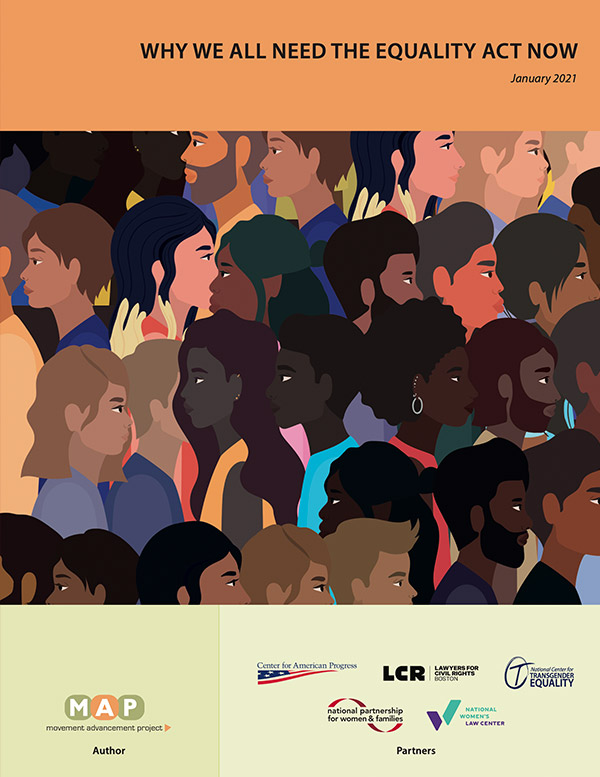Why We All Need the Equality Act Now (PDF)Download Press Release: New Report Outlines Why the Equality Act is the Civil Rights Update Needed Now for Women, People of Color, and People of Faith, in Addition to LGBTQ PeopleVisit
In 2021, Congress has the opportunity to recommit our country and our elected officials in securing fairness and equality for all by passing the Equality Act.
Why We All Need the Equality Act Now outlines the ways in which the Equality Act is vital legislation not just for LGBTQ people, but also for women, people of color, and immigrants.
The Equality Act would update existing civil rights law by:
Filling critical gaps in nondiscrimination protections in public places.
Protecting against sex discrimination in public accommodations and federally funded programs.
Adding explicit nondiscrimination protections for LGBTQ people.
The report highlights the urgency of adding such protections now—especially given the number of public places in which people of color experience discrimination, such as in retail shops and taxi cabs. The Equality Act builds on the legacy of the Civil Rights Act of 1964 by expanding the public places where discrimination is explicitly prohibited to include retail stores, bars, taxis and ride sharing, small entertainment venues like bowling alleys, and personal services such as barbershops and salons. Expanding where discrimination against people of color, immigrants, people of faith and others is prohibited to more of the places people visit daily is critical.
The report also outlines the ways that the Equality Act would protect against sex discrimination in public places including stopping pharmacies from refusing to fill prescriptions for birth control or preventing dry cleaners from charging women more than men. Additionally, because sexual harassment is a form of sex discrimination, new legal protections in the Equality Act would prevent sexual harassment in restaurants, hotels, and in transportation.
Additionally, the Equality Act will explicitly add “sexual orientation and gender identity” to existing civil rights laws, meaning that LGBTQ people will be expressly protected in key areas of everyday life, including housing, health care, public accommodations, education, and more. Currently, 29 states do not have laws that explicitly protect LGBTQ people from such discrimination.
Authored by the Movement Advancement Project, the report is released in partnership with the Center for American Progress, Lawyers for Civil Rights, National Center for Transgender Equality, National Partnership for Women and Families, and National Women’s Law Center.
Recommended citation: Movement Advancement Project. January 2021.
Why We All Need the Equality Act Now.
www.lgbtmap.org/2021-equality-act. Accessed [date of access].


